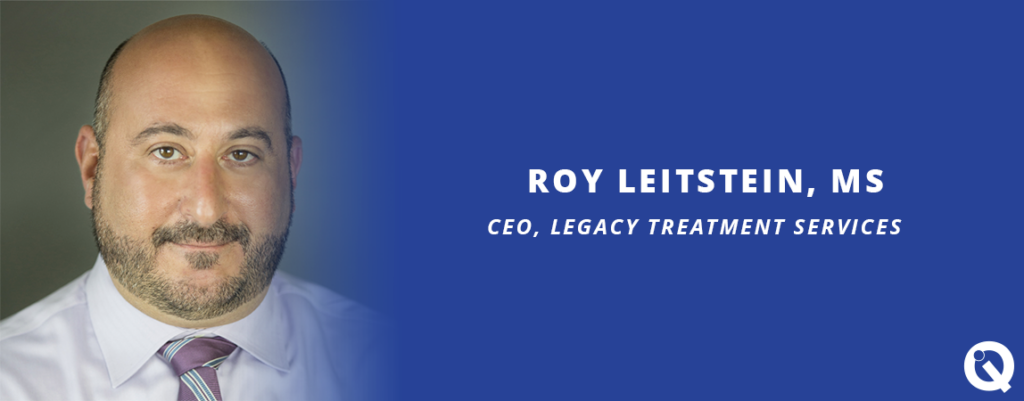Roy Leitstein, MS, is the CEO of Legacy Treatment Services, a New Jersey-based nonprofit behavioral health and social services provider. Leitstein will speak at the Quality Institute’s Spring All-Council Conference on May 17.
At our Spring Conference, you will talk about how the stigma still associated with behavioral health treatment creates barriers to integrating physical and mental health care. Why does stigma still exist and what can we do to reduce or even eliminate the stigma around behavioral health care?
Stigma exists in behavioral health care because many individuals and professionals, even in the health care industry, can view behavioral health challenges and diagnoses as a choice as opposed to an actual disease and diagnosis. I believe the best way to fight and eliminate stigma is to educate folks. And even though it’s not a choice, nowhere in the treatment for behavioral health does it mean patients are not held accountable for their actions. A parallel example in physical health would be a patient who has a cancer diagnosis, and they are a smoker. You need to move past the choices, perhaps the poor choices that an individual has made, and move forward to treat the cancer.
How do the continuing barriers to integrating physical and mental health care harm patients?
Quite simply, if patients don’t feel like the environment is one that’s conducive to discussing their mental health or addiction challenges, then they won’t discuss it. In those circumstances, we piecemeal behavioral health care treatment.
We need integration of care. We know that a substantial portion of psychotropic medication is prescribed by individuals who do not have an expertise in behavioral health and mental health or addiction treatment. So, when you go to a primary care doc — or I use the example of an OBGYN who prescribes an antidepressant for postpartum depression — the patient is missing a significant component of treatment, especially if the initial pharmacological intervention isn’t successful.
Can you provide specific policy changes to advance integrated physical and mental health care?
Truly integrated care is with the mental health professionals or the behavioral health professionals working alongside primary care providers. It’s beyond a referral relationship. True integrated care is when the primary care doc looks inside your chart and sees that you are medication compliant, that you’ve made it to therapy…oftentimes they’ll be able see what’s transpired in the treatment plan.
As far as policy change, New Jersey already passed laws to allow for the regulatory premise of an integrated care license, but it’s yet to propose and adopt those regulations and issue those licenses. It’s been years. The regulatory process of being able to serve behavioral health patients, in essence, requires three licenses: a primary care license, a mental health license, and a substance abuse license. Shifting that to a single licensing application process would greatly eliminate one of the most significant barriers to integration.
New Jersey Medicaid’s 1115 Waiver was recently approved. Behavioral health, which was carved out of managed care, is going to be included under Managed Care Organization (MCO) contracts. Under these changes, and as providers and payers move to value-based contracting, we need to make sure that the reimbursement rates are fair and sustainable. We need laws that ensure that MCOs will pay mental health providers at least Medicaid fee for service rates and that those rates will be adjusted for inflation.
Finally, we like to ask a question beyond your professional life. Who is your favorite New Jersey artist, writer, director, singer, painter, etc.?
I hate to sound cliche, but Bruce Springsteen is definitely my favorite New Jersey artist. I lived in Freehold Borough, six houses away from where he grew up. My first house was this little 900 square-foot home. There was a crack in the door and the Nestle factory was pretty much my front yard. And I just think Bruce has this sort of iconic Jersey mentality, right? There’s a little bit of edge to him. There’s a little bit of blue collar, but don’t underestimate what he’s got going on upstairs. Bruce Springsteen really helped motivate and speak to a generation.

